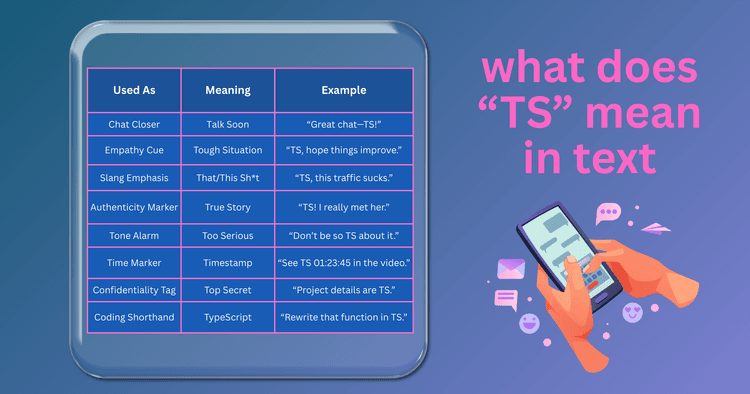Should job titles be capitalized in a sentence? Getting this wrong can undermine your professionalism—poor capitalization suggests a lack of attention to detail.
As a general rule of thumb, capitalize job titles when used as proper nouns and leave them lowercase when used as common nouns.
Whether you're writing a resume, a business email, or a formal report, properly capitalizing the name of a profession will make your writing polished and consistent. In this comprehensive guide, we'll explore the grammar rules for job title capitalization, review real‑world examples, and offer practical tips to ensure accuracy and clarity.
You can also try our Free Grammar Checker tool to instantly validate your capitalization and other grammar rules throughout your text.
ᴀᴅᴠᴇʀᴛɪsᴇᴍᴇɴᴛ
Are Job Titles Capitalized: Understanding the Basics
The basic rule for job title capitalization is simple:
- Capitalize a position when it directly precedes a person’s name or forms part of someone’s official title, e.g., “Chief Executive Officer John Smith.”
- Lowercase a role when it’s used generically or descriptively, e.g., “Jane Smith, chief executive officer of the company.”
Quick Reference: When Do You Capitalize Job Titles
| Capitalize Job Title | Don’t Capitalize It |
|---|---|
| Before a person’s name (e.g., President Lincoln) | When used generically after a name or as a common noun (e.g., “the president spoke”) |
| In direct address, replacing a name (e.g., “Good morning, Captain.”) | When describing roles in general (e.g., “marketing managers attended the conference.”) |
| In formal listings—résumés, email signatures, bylines (e.g., “Jane Doe, Head of Marketing”) | When included in descriptive appositives (e.g., “Elizabeth, the chair of the board,”) |
For further tips on avoiding common grammar mistakes, see our Grammar Rules That Are Often Broken.
Capitalizing Proper Nouns: Job Titles as Titles
When a job title functions as a proper noun—appearing immediately before a person’s name or replacing their name in direct address—it should be capitalized like any other formal title.
- Before a name:
“Professor Jane Doe will lead the seminar.”
“General Patton authored his memoirs.” - Replacement for a name:
“What are your orders, Captain?”
“Doctor, please advise.” - In formal listings:
In résumés, email signatures, and bylines, titles remain capitalized even after the name:
“Amadou Ba, Head of Marketing.”
“Written by Carol Green, Associate Editor.”
Lowercasing Common Nouns: Job Titles Used Generically
When you refer to job titles in a general sense—describing roles rather than individuals—they become common nouns and should be written in lowercase.
- Generic references:
“The company hired three marketing managers.”
“She aspires to become a software engineer.” - Appositive or descriptive phrases:
“Elizabeth Devi, the chair of the board, spoke first.”
“A president must remain impartial.”
For usage nuances like “based on” vs. “based off,” see our Based On or Based Off guide.
Company‑Specific Style Guides: Your Brand, Your Rules
Every organization can—and often does—publish its own style guide that tweaks standard grammar rules to fit its brand voice and internal consistency. For example, Acme Corp’s internal manual requires that all managerial titles in email signatures be capitalized even after the name (“Jane Carter, Senior Product Manager”). Always consult your company’s style guide before overriding a general rule—what feels like overkill elsewhere may be mandatory at your brand.
ᴀᴅᴠᴇʀᴛɪsᴇᴍᴇɴᴛ
Industry Conventions: Speaking Your Field’s Language
Many professions maintain their own capitalization customs, especially when titles convey authority or specialization. In legal writing, “Court” is capitalized when referring to the presiding body (“The Court finds that…”), whereas “courtroom” remains lowercase. In medical reports, you’d write “Cardiologist Diane Lee performed the procedure,” but refer generically to “the cardiologist” in narrative text. To maintain credibility, learn and follow your field’s house style (for instance, The Bluebook for law or the AMA Manual of Style for medicine).
How APA, MLA, Chicago & AP Capitalize Job Titles
Different publishing authorities offer detailed guidance, but they all share the proper‑noun vs. common‑noun distinction:
- APA & MLA capitalize titles before names and lowercase them when they follow names or stand alone.
- The Chicago Manual of Style adds nuance around generic vs. professional titles but still caps formal titles before names.
- AP Style aligns with Chicago, with the caveat to avoid overly long titles in headlines and copy.
For more on academic formatting and citations, dive into our How to Write Footnotes guide.
If you’re not bound by a strict guide, default to the general rule. Otherwise, consult the relevant style manual for any edge cases.
Formal vs. Informal: Tone Considerations in Job‑Title Capitalization
Your choice of capitalization can also reflect tone and context. In formal writing—academic papers, business reports—favor capitalization to convey professionalism. In more informal contexts—casual emails, social media posts—you may choose lowercase for a friendlier feel. For advice on crafting professional bios and other polished business writing, see our post on How to Write a Bio. Either way, stay consistent within a single piece.
FAQs
Should a job title be capitalized?
Yes—when it directly precedes a person’s name (e.g., “Professor Jane Doe”) or forms part of a formal title in listings (e.g., “Jane Doe, Associate Editor”).
Are job titles capitalized in cover letters, résumés, or CVs?
Yes—cover letters and CVs require capitalized job titles in your formal entries and headings. Treat each position as a proper noun (e.g., “Senior Software Engineer, 2024–2025”) and capitalize roles listed alongside your name. Within the cover-letter body, apply the usual before-name/after-name rule and lowercase titles used generically.
Should titles be capitalized in essays?
Yes—academic essays and personal statements follow the same capitalization guidelines: capitalize a job title when it directly precedes a person’s name or forms part of a formal title (e.g., “Historian Mary Grant”), and use lowercase when discussing roles in general (e.g., “historians rely on primary sources”). Consistent title capitalization enhances clarity and professionalism in your writing.
When should job titles, roles, and positions be lowercase?
When used generically or descriptively, without referring to a specific person (e.g., “The company hired three marketing managers”).
Should job titles be capitalised if my company’s style guide differs?
Always defer to your internal guide—company-specific rules override general conventions when explicitly stated.
Does capitalization of job titles differ in different style guides?
Only in edge cases. APA, MLA, Chicago, and AP all hinge on the before-name vs. after-name distinction, with minor variations in nuance.
Should you capitalize titles like Doctor, Manager, President, or Chief Executive Officer when used as titles?
Yes—treat all standard honorifics and formal role titles as proper nouns whenever they directly precede a name or stand in for one.
-
Before a name: “Doctor Lee will see you now,” “President Grant signed the bill,” “Manager Nguyen approved the budget.”
-
In direct address: “Good morning, Doctor,” “Thank you, President.”
-
In formal listings: “Jane Doe, Chief Executive Officer,” “Carlos Ruiz, Manager, Sales Department.”
When these titles appear generically (“doctors recommend rest,” “many managers attended”), lowercase them to keep the focus on the role rather than a specific person.
Should acronyms and honorifics be capitalized?
Yes—always capitalize standard initialisms and titles such as CEO, CFO, IT, Dr, Mr, and Ms. In contrast, abbreviations like vs. (for “versus”) stay lowercase in running text unless they begin a sentence. This approach ensures clarity and aligns with modern style guidelines.
ᴀᴅᴠᴇʀᴛɪsᴇᴍᴇɴᴛ
Conclusion
Correct use of capitalization for job titles, roles, and positions ensures clarity and professionalism in all your writing. It enhances credibility and overall impact in formal business communications or when engaging with readers online. By following these guidelines—and any company‑specific or industry conventions—you’ll convey respect for roles and people alike, while keeping your prose consistent and polished.
Ready to put these rules into practice? Run your next draft through our grammar checker and see how many capitalization errors you catch!







